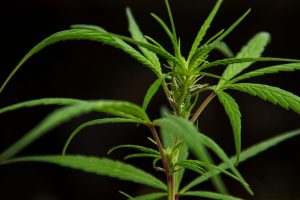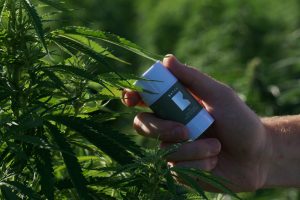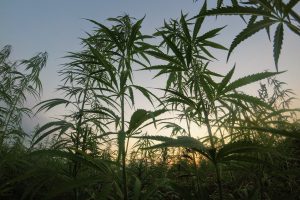Rwanda is a new entrant into the multi-billion commercial cannabis industry in Africa, joining countries like Malawi, Zimbabwe, South Africa, Ghana, Uganda, Zambia, and Lesotho. The efforts to legalize medical marijuana in Rwanda started in 2010 when the government introduced a bill in parliament. Almost 10 years down the line, the Rwandan cabinet approved guidelines on the growing and export of medical marijuana on October 12, 2020.
Rwanda seeks to target fast-growing markets in Europe and the United States. According to estimates, the legal cannabis industry could be worth more than $7 billion by 2023 if more African countries loosen their strict cannabis laws.
The UN Commission on Narcotic Drugs (CND) voted in December 2020 to remove marijuana from Schedule IV of the 1961 Single Convention on Narcotic Drugs where it was listed as one of the most dangerous drugs. The decision is expected to highlight the medicinal and therapeutic potential of marijuana as well as drive scientific research into marijuana.
The use of marijuana other than for medicinal purposes is still illegal in the country and can be punished with fines ranging between Rwf500 000 and Rwf5 million or a jail term of two years. Marijuana sellers and dealers can face up to 20 years in prison. Rwanda has legalized medical cannabis expecting the sector to generate massive export revenues and create many employment opportunities in the agricultural and processing sectors. The government will introduce a special export levy to incentivize domestic value addition and generate additional government revenue.
Medicinal Uses of Marijuana
Medical marijuana involves the use of the cannabis plant or its chemical derivatives to treat diseases. Marijuana has a wide range of medical applications and can be used to make several drugs. It is used to treat cancer, arthritis, anxiety, glaucoma, migraines, epilepsy, insomnia, multiple sclerosis and muscle spasms, Parkinson’s disease, inflammation, and Alzheimer’s disease. Additionally, marijuana regulates and prevents diabetes, helps to lose weight, quickens the healing of broken bones, and treats depression. Rwanda has been importing cannabis for medical purposes, but its legalization should enable the country to supply the crop.
Examples of drugs made using marijuana include the following:
- Sativex: a nasal spray used to treat spasticity in patients with Multiple Sclerosis (MS) and neuropathic pain.
- Nabilone /Cesamet: used to treat nausea and vomiting in cancer patients.
- Dronabinol /Marinol: used to treat a wide range of medical conditions such as nausea and vomiting in cancer patients, loss of appetite, and weight loss in HIV positive patients.
- Dexanabinol: a neuroprotective drug used after cardiac surgery. It protects the brain from damage. Dexanabinol is also used to regain memory following a traumatic brain injury.
- Cannabinor: an anti-inflammatory drug used to treat chronic neuropathic pain.
- Ajulemic Acid (CT-3): used to treat spasticity and neuropathic pain in Multiple Sclerosis patients.
Guidelines for the Production and Export of Medical Marijuana in Rwanda
The growing and exporting (from purchasing planting materials, seed cultivation, and handling post-harvesting) of medical marijuana in Rwanda will be subject to strict guidelines. The guidelines will establish quality growing and processing standards and outline requirements for licenses and permits.
Investors interested in producing and exporting medical marijuana in Rwanda will be required to apply for licenses from the Rwanda Food and Drug Authority (FDA). Investors will need to get licenses to import planting materials and permits for every consignment they want to export. The first investors to be selected to begin mass production of marijuana in the country are four companies from Israel, America, the Netherlands, and South Africa. The names of the companies have not yet been made public. The government is yet to give details on when production will begin and where the farms will be located.
Licensed marijuana farmers will need to have strong security programs approved by the Rwanda Development Board’s security organs. Each farm will be required to install CCTV cameras, streetlights, have watchtowers, and employ human security guards. The crop should only be grown for export. The strict measures are to ensure the crop’s security to prevent it from leaking to the domestic market.
Final Thoughts
The medical cannabis produced in Rwanda is strictly for export as the country currently lacks the capacity for pharmaceutical development and research of marijuana. This might change when the industry is developed to give room for local research. It is important to note that the legalization of medical marijuana for export does not currently affect the legal status of cannabis consumption in the country.


![How to Grow Hemp for Industrial and Medicinal Use [Beginner’s Guide]](https://businessideas4africa.com/wp-content/uploads/2020/11/vpfehvi5ue4-scaled-300x200.jpg)





![Starting a Lucrative Hemp Farming Business in Zambia [Interview]](https://businessideas4africa.com/wp-content/uploads/2020/10/pgc9vid8o24-scaled-300x200.jpg)